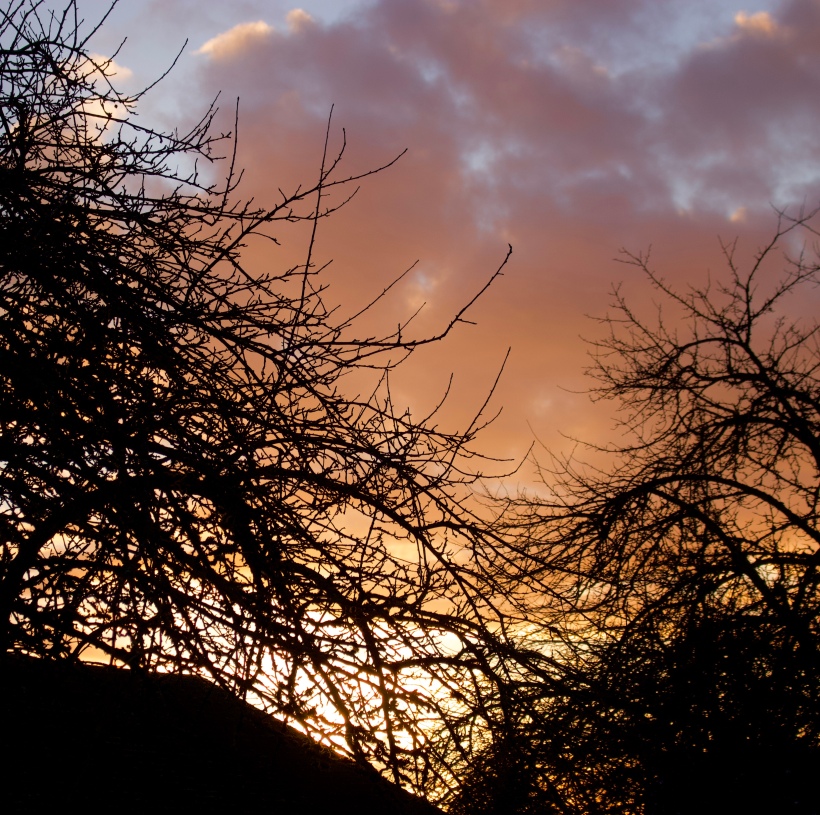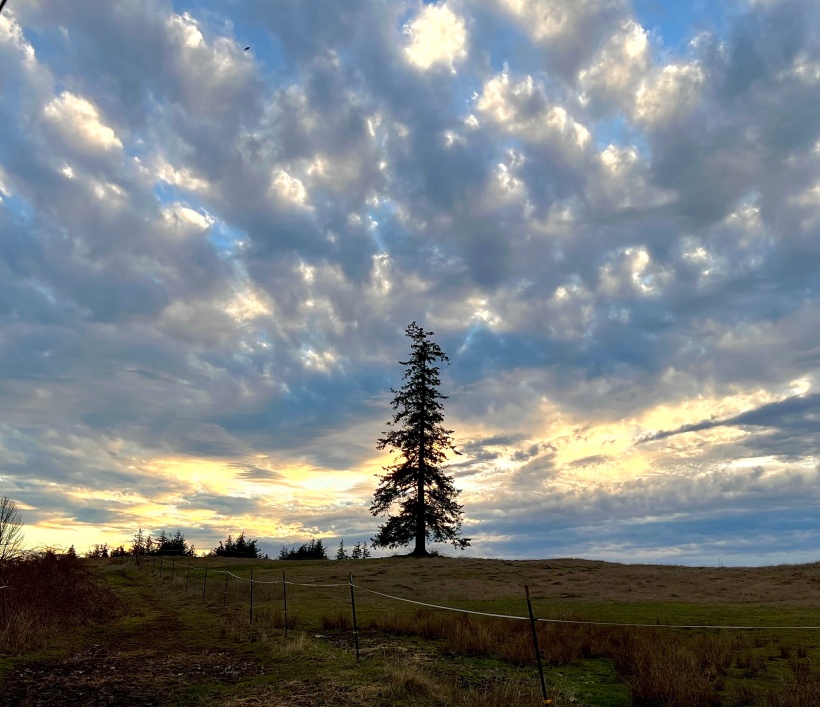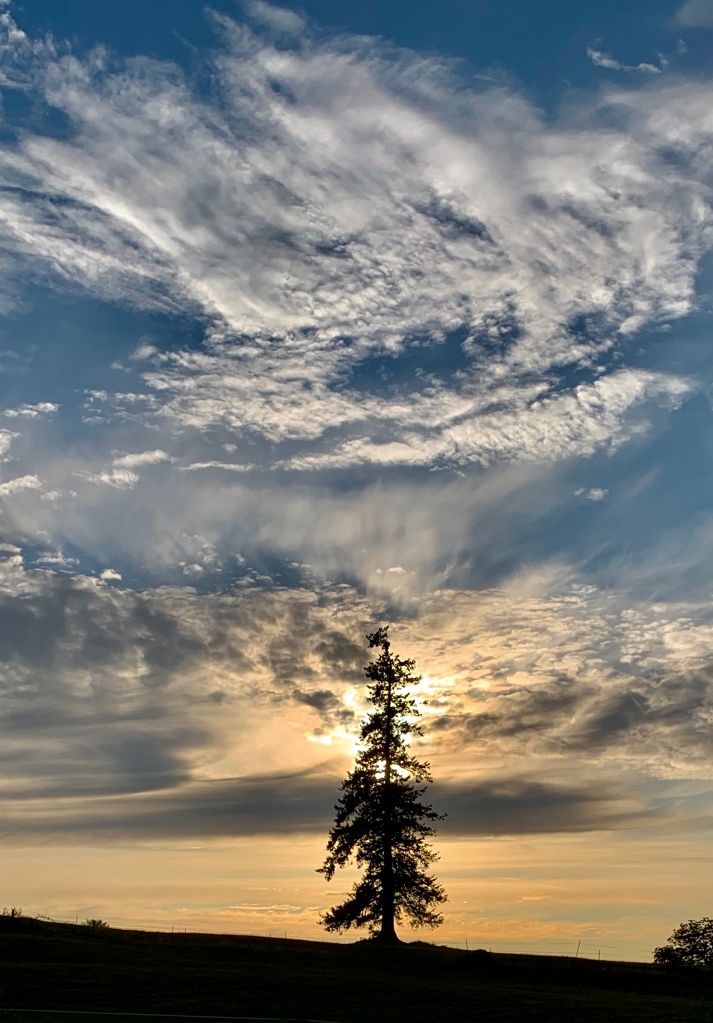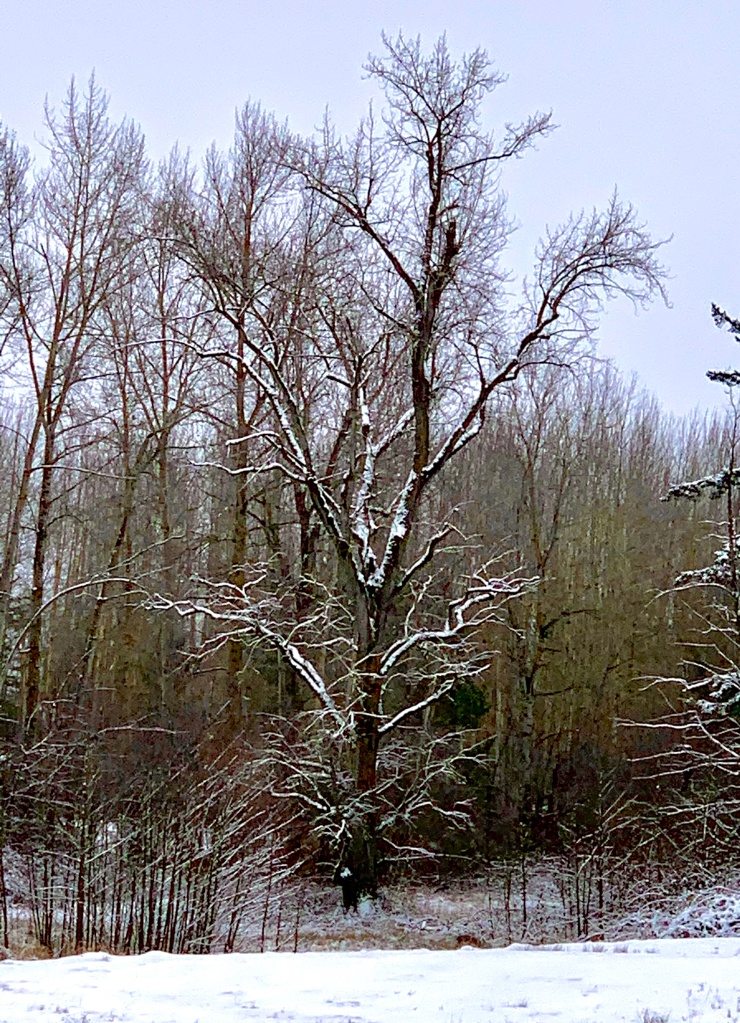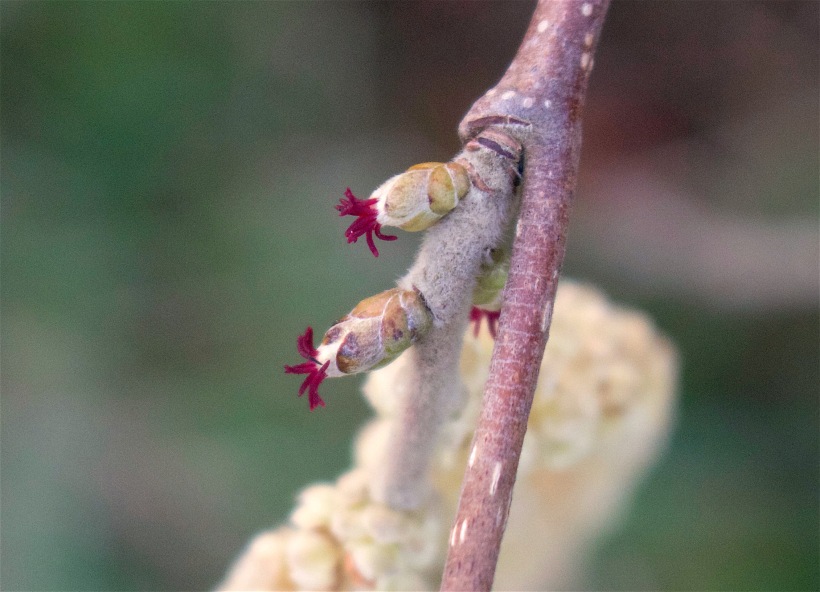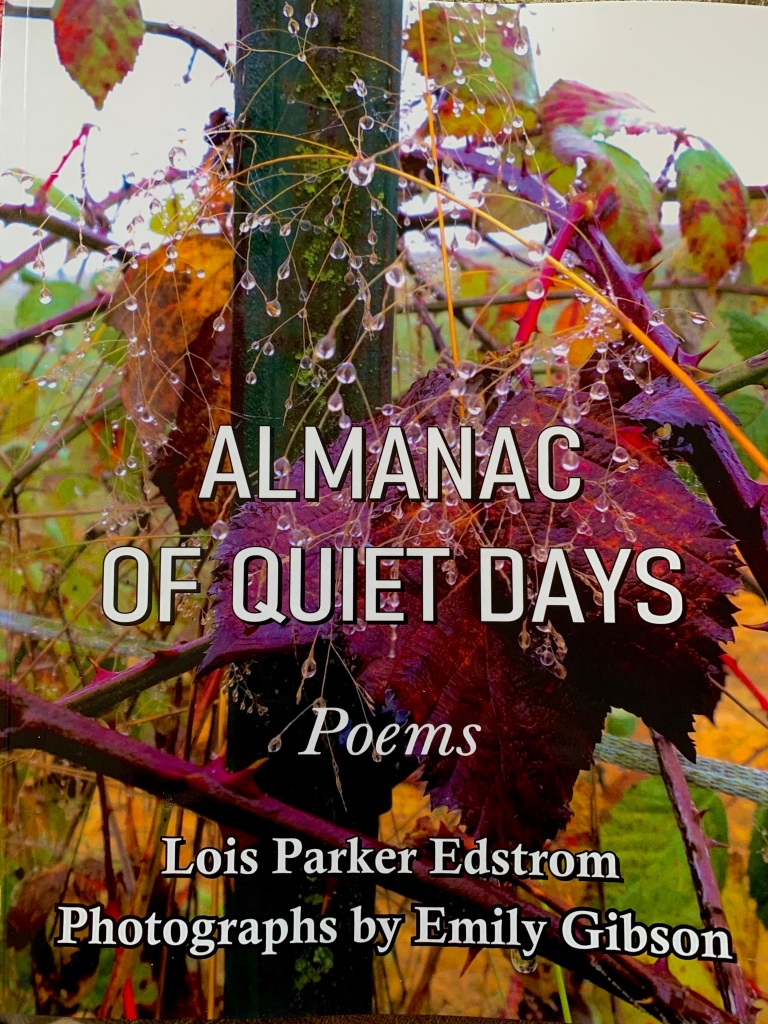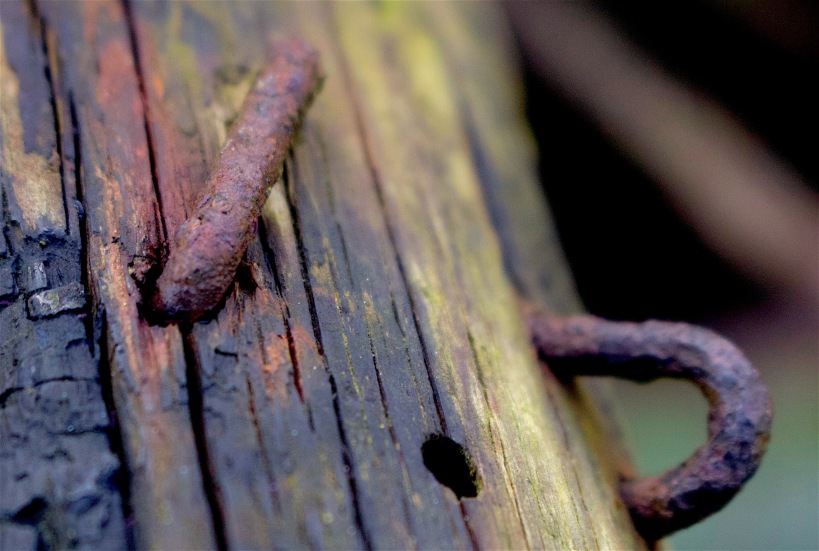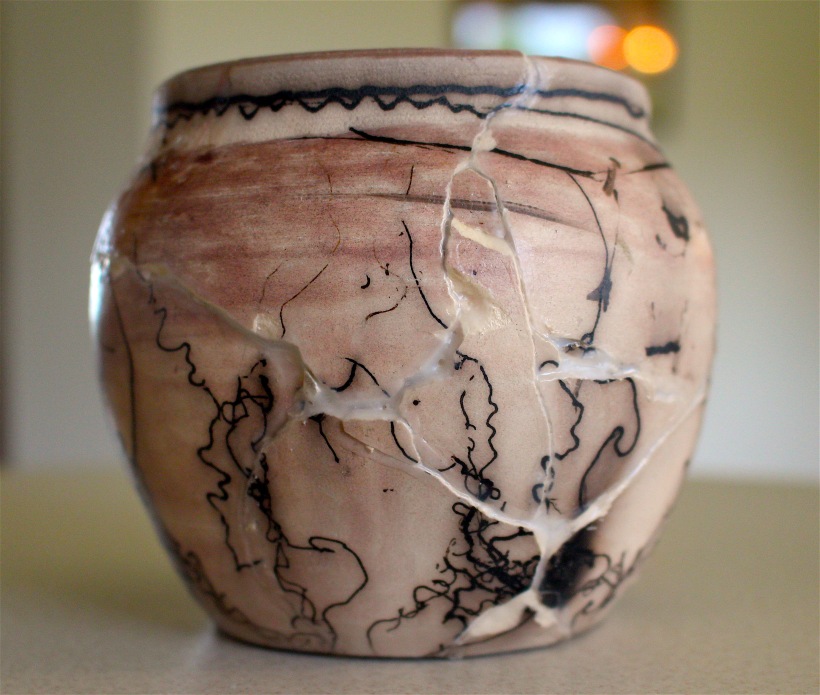
The great mystery of God’s love is that
we are not asked to live as if we are not hurting,
as if we are not broken.
In fact, we are invited to recognize our brokenness
as a brokenness in which we can come in touch
with the unique way that God loves us.
The great invitation is to live your brokenness under the blessing.
I cannot take people’s brokenness away
and people cannot take my brokenness away.
But how do you live in your brokenness?
Do you live your brokenness under the blessing or under the curse? The great call of Jesus is to put your brokenness under the blessing.
~Henri Nouwen from a lecture at Scarritt-Bennett Center
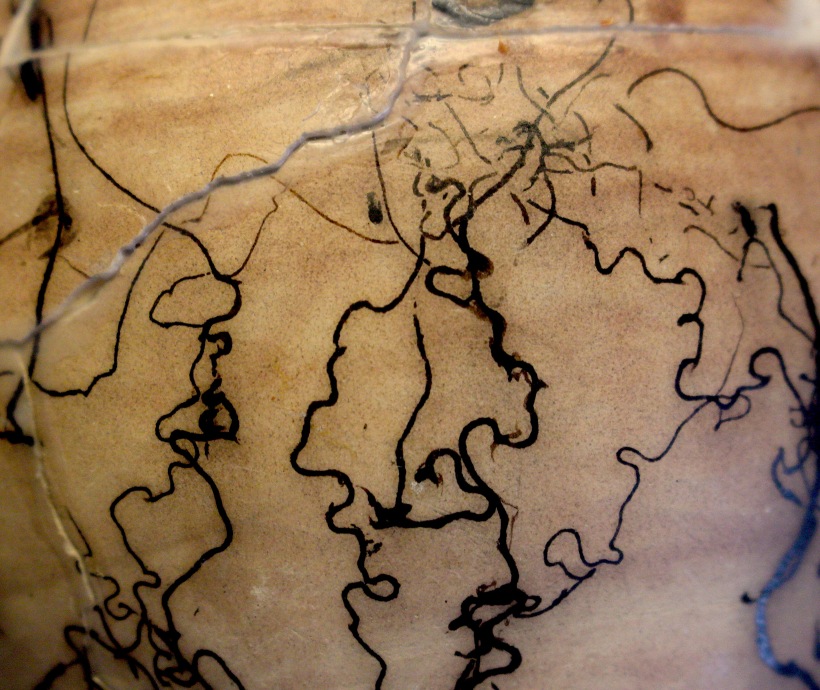
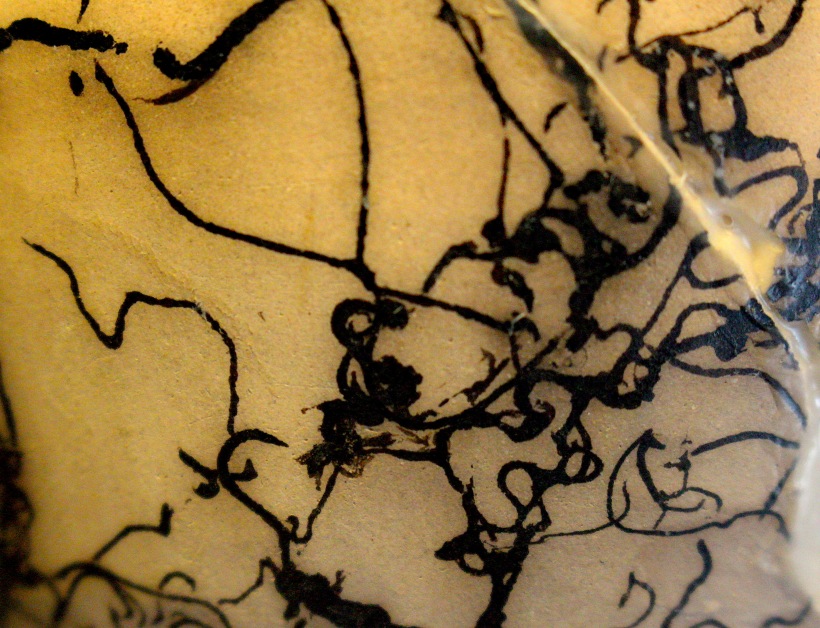
…be a glorified human being, with wounds. God the Kintsugi master who beholds such brokenness in tender care, invites us, and asks of us, to be present in suffering and incalculable losses.
… worship a Wounded Glorified Human Being, and be that ourselves.
~Makoto Fujimura from Kinsugi Grace
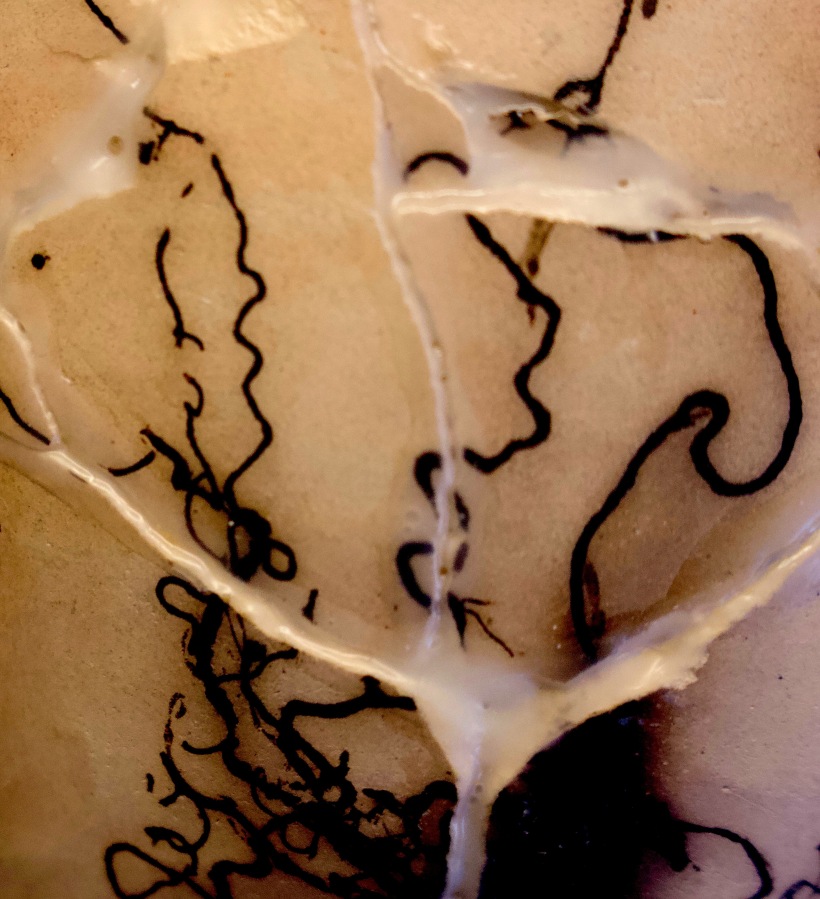
It is a ceramic pot meant specially for our kitchen table — handmade by a potter friend using the abstract artistry of mane hairs from our farm’s Haflinger horses burnt onto the sides. But it hit the floor and broke into many pieces, looking completely beyond repair.
It is back on our table, repaired with love and care by another friend, using nothing more than copious amounts of Elmer’s Glue. This is the glue of every child’s school desk, the glue of every mother’s junk drawer, the glue of every heart that needs mending.
Elmer’s is not the gold of the Japanese art of kintsugi, where broken vessels are repaired with precious metals, creating an object even more valuable and beautiful than before, with streaks and tracks of gold highlighting their shattered history.
Yet it is now even more precious to me. Someone we love cared deeply enough to make it in the first place, and another we love cared deeply to repair it, making it even more beautiful and blessed in its brokenness, highlighting ragged pieces made whole again.
Someone made us.
Someone repairs us when we fall apart.
Someone blesses our brokenness with a glued-together beauty that makes us whole.
Every day, as the sun goes down,
I pause, broken, remembering how often
I messed up that day, in big and small ways.
Cracked open, my mistakes are illuminated,
weighing down my heart, impossible to forget.
Yet, as I pray for mercy, there follows a peacefulness,
as my errors are blotted out. My slate, one more time, is wiped clean.
Therefore do not lose heart.
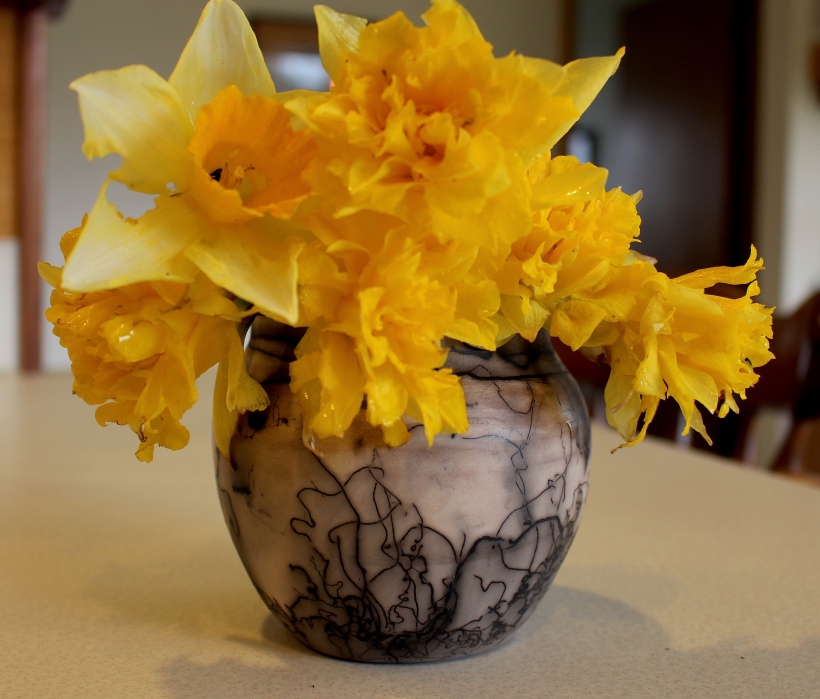
For God, who said, “Let light shine out of darkness,” made his light shine in our hearts to give us the light of the knowledge of God’s glory displayed in the face of Christ.
7 But we have this treasure in jars of clay to show that this all-surpassing power is from God and not from us. 8 We are hard pressed on every side, but not crushed; perplexed, but not in despair; 9 persecuted, but not abandoned; struck down, but not destroyed. 10 We always carry around in our body the death of Jesus, so that the life of Jesus may also be revealed in our body. 11 For we who are alive are always being given over to death for Jesus’ sake, so that his life may also be revealed in our mortal body. 12 So then, death is at work in us, but life is at work in you.
16 Therefore we do not lose heart.
2 Corinthinians: 6-12, 16
Make a one-time or recurring donation to support daily Barnstorming posts
Make a monthly donation
Make a yearly donation
Choose an amount
Or enter a custom amount
Your contribution is deeply appreciated.
Your contribution is appreciated.
Your contribution is appreciated.
DonateDonate monthlyDonate yearly











